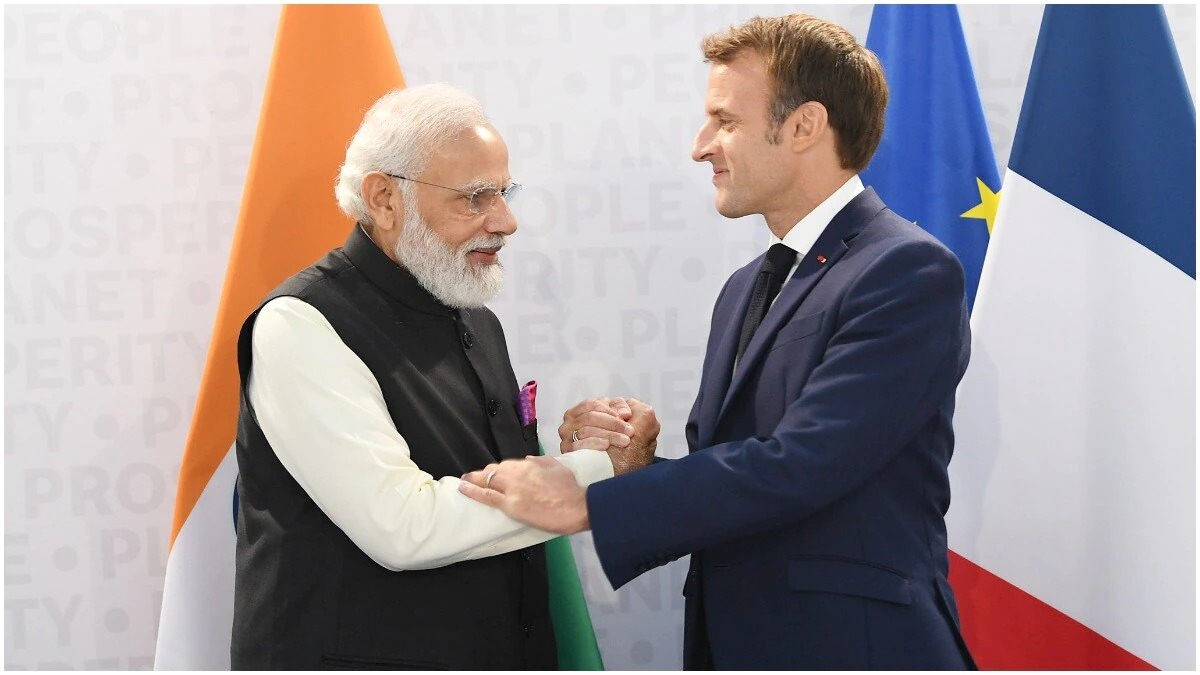- The article examines the strong and unique “Strategic Partnership” between India and France, including its beginnings, evolution, and present characteristics. It emphasises the relationship’s long-term character, as evidenced by similar principles, geopolitical convergence, and mutual respect in a variety of fields including defence, space, education, and business.
Key highlights:
- Origins and evolution: The strategic cooperation dates back to 1998, when France became the first P-5 countries to endorse India’s bid for a permanent seat on the UN Security Council.
- Geopolitical Convergence: Both countries value multipolarity and strategic autonomy, and they share concerns about a unipolar world, which contributes to their natural convergence.
- Defence collaboration includes the creation of submarines, joint military exercises, and the purchase of Rafale aircraft. The recently completed Defence Industrial Roadmap increases defence connections.
- Space Cooperation: ISRO and CNES have signed cooperative missions and agreements, reviving space cooperation that began in the 1960s.
- Commercial and Civilian Ties: Efforts are being made to widen the collaboration into commercial and civilian areas, with collaborative working groups in several industries and an increasing number of Indian students pursuing higher education in France.
Key Challenges:
- Business Transition: Moving the collaboration from government domains to business and civilian settings offers a challenge, necessitating ongoing efforts to improve cooperation across multiple sectors.
- Differences Management: While strategic partnerships do not demand agreement on every subject, resolving differences discreetly rather than publicly is critical for building a mature and resilient relationship.
Key terms:
- Strategic partnership: A unique connection between states characterised by cooperation in a variety of areas, including defence, space, and business.
- Multipolarity refers to a global system with numerous centres of power and influence rather than a single dominant force.
- P-5 refers to the five permanent members of the United Nations Security Council, including France.
- Geopolitical Focus: The shifting of attention and strategic interests from one region to another as global dynamics change.
Key phrases:
- Civilization Exceptionalism is a shared quality between India and France, emphasising pride in their distinct civilizations without pushing their ideals on one another.
- Argumentative Intellectualism: A feature shared by both countries that emphasises their appreciation for intellectual discourse.
Key Quotes:
- “India and France have valued strategic autonomy in their own fashion.”
- “‘Strategic Partnership’ does not require convergence on all issues but sensitivity so that differences, where these exist, are expressed in private and not publicly.”
Key Examples and References:
- Jacques Chirac’s Declaration (1998): France supports India’s bid for a permanent seat on the UN Security Council.
- Defence Industrial Roadmap: Defense-related agreements and cooperation, such as the acquisition of Rafale aircraft and submarine development
Key Statements:
- “It is clear that the two countries do share a ‘Strategic Partnership’ that is special.”
- “Both countries were quick to espouse the virtues of multipolarity.”
Critical Analysis:
This article provides a detailed description of the India-France strategic alliance, including its historical backdrop, geopolitical justification, and practical applications. It emphasises the difficulties of moving from government-centric collaborations to larger commercial and civilian interactions. The emphasis on addressing conflicts discreetly, as well as the relationship’s maturity, demonstrate a nuanced grasp of international diplomacy.
Way Forward:
- Enhanced Commercial Ties: Continued attempts to widen the alliance to include commercial and civilian sectors, boosting economic engagement beyond defence and space.
- Cultural and Educational Exchange: Increasing cultural linkages, establishing educational cooperation, and encouraging more Indian students to attend higher education in France.
- Diplomatic Sensitivity: To maintain the partnership’s mature and resilient nature, issues must be handled with sensitivity and diplomatic disputes addressed quietly.
The India-France Strategic Partnership, founded on shared values and mutual respect, is evolving favourably, creating prospects for future expansion and collaboration across all areas.
Source: https://www.thehindu.com/opinion/lead/what-makes-the-india-france-strategic-partnership-tick/article67797395.ece

